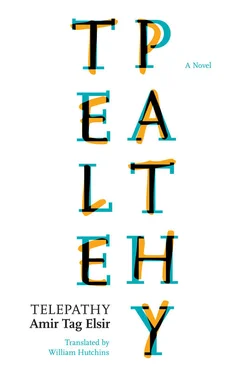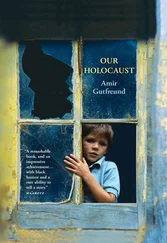This driver didn’t know me as a writer but as a former math teacher who had taught him in middle school. He had not forgotten that I had mistreated him more than anyone else in his life. I had punished him non-stop for extreme inattention and incomprehension of lessons. Because of me, he had been forced to drop out of school and to work at a great number of humiliating jobs, until he ended up as a cabbie. He related to me all my errors: giving him detention in the classroom for many hours while his classmates whispered together, pulling him by his ear in front of the other pupils, calling him a shoeshine boy hundreds of times. My mind caught some of this but not all while a rude song blasted from the vehicle’s player: “He fed me noodles when I didn’t have a penny and said to me: ‘Sleep, dear.’” I was forced to apologize to him in a feeble voice — totally unlike the harsh voices of teachers — for my severity, which I had thought was in his best interest. I honestly didn’t remember all the forms of punishment that he rattled off and don’t think they would have come naturally to me even when I was a teacher. The taxi driver accepted my apology good-naturedly and deposited me in front of the cemetery. The driver refused point blank to accept his fare, repeating, “By God Almighty, your fare is dedicated to the deceased woman. We are God’s and to Him we return.”
We buried the distinguished reader in al-Salatin Cemetery, an old cemetery on a neglected road on the outskirts of the city. It enjoys a prestigious reputation, and its history dates back to the era of the former kingdoms. It is said that the daughter of the last sultan of the Kingdom of Funj was buried there, but it certainly didn’t give that impression. There was nothing except pebbles, dry dirt, and some straggly shrubs, which revived during the rainy season and looked dead during a drought. The Shadow had chosen this cemetery himself, despite his suffering. I knew that he loved it and had spent a number of months living in a shack near it, entering it several times a day to help people bury their dead so he could write a play that focused on the dead. The play, “The Sultan’s Hand,” was performed in the late 1970s. I attended it when I was still a teenager and not at all tuned in to art and writing.
The loss was obviously great, and the funeral was crowded with many people I knew and many I didn’t. I saw Sonia al-Zuwayni, the Moroccan proprietor of hair salons, swathed in mourning black; I wouldn’t have suspected that she knew the Shadow well enough to share in the family’s sorrow in this manner. I also observed Professor Hazaz, the reflexologist, as nimble as ever, but his face looked a little different. The glamorous star Mustafa Khalifa was there, along with a number of poets, novelists, and dramatists, as well as the retired female vocalist Zakiya the Nightingale. The Shadow told me once, when he was in a good mood, that they had loved each other madly. A young writer with bushy hair, who had published a novel called Futile Yearning two years earlier, approached me and told me in a whisper that the deceased woman had spoken to him by telephone and discussed his talent and his novel enthusiastically, asking him to write more novels because he had a distinctive style. He admitted that when he heard her tremulous, breathy, languid, inspirational voice he had never imagined she was a girl who was fighting to survive.
So I wasn’t the only person whose writing Linda had fallen in love with and I wasn’t the only man who had sketched a dazzling portrait of The Reader. Perhaps he was also recalling her on drab nights. I happened to be the one who had seen his portrait ripped to shreds.
When I was most deeply immersed in the prevailing atmosphere of tragic loss, I spotted Najma. I tried to avert my face from her eyes as best I could but failed. It was the same new Najma who had updated herself as part of a plan to achieve motherhood without bothering with the preliminaries; she had not reverted to her former classic self. She was walking in Linda’s funeral procession, after decking herself out, applying cosmetics, and allowing her hair, which she had dyed blonde this time, to extend enticingly beyond her light headscarf. She actually looked more like a girl in a bridal procession than someone at a funeral.
I suddenly found Najma beside me, very close to me, and almost touching me — in spite of the oppressive burden of the tragedy — while men’s eyes, which could brush aside every other distraction, collided with her and me. I felt agitated. She asked, “Why are you ignoring me, Master? Why haven’t you returned my calls?”
I didn’t know how to respond. I had made a firm decision not to reply to her calls. My feelings had instituted that policy and my humane tendency, which no doubt is shared by most other people, had confirmed it. I almost blurted out, “Why would I answer a girl who is a calamity?” All the same, I was afraid she might collapse or become hysterical in this mournful place and at a time when an outburst would be totally inappropriate. I knew from personal experience that personalities like hers were capable of creating any type of spectacle for no reason at all. So I said, “I haven’t found the time. I’ve been absurdly busy.”
She replied, after, I imagined, carefully filling her sentence with traps before she uttered it. “I was contacting you to tell you what I thought of three of your novels that I have recently read. You’re a brilliant writer, and your friendship makes me very happy as does your advice, which will help my writing in the future.”
She didn’t mention the name of the three novels she had read. I swear she hadn’t read more than half a page out of my thousands of pages of works. Had we not been at a funeral, I would have asked her about the books and inundated her with questions about characters and events and what she derived from reading the novels. Of course I wouldn’t do that, and she knew this perfectly well, because she could see my misery and that of the real people with whom she was saying farewell to Linda the Shadow.
They had begun the funeral rituals when Najma left me, after pressuring me to meet her soon. Now I was able to breathe, to weep silently, and to extend my hand to help lower Linda into the great beyond and to try to support the Shadow to keep him from falling, despite his heroic composure, which I sensed was very fragile and could shatter at any moment. I was listening without much interest to a sermon delivered deliberately and expertly by a man of sterling faith, when I noticed Luqman the Shadow, or Loco with a Shadow, run up from the distance. He was short and plump, and his hair was in cornrows. He wore yellow, reflective glasses, jeans that were ripped at the knees, and a T-shirt adorned with a color portrait of the late singer Michael Jackson.
Evening had fallen when Loco arrived. Notwithstanding his long period of exile and his appearance, which didn’t fit our society, he retained his sense of solidity with our community and had come when he learned that his sister had died.
I have mentioned that my suspicions began to get the better of me, especially when Nishan Hamza disappeared from my life and from the city’s hustle and bustle, apparently once and for all.
I began brooding seriously on some aspects of his story that didn’t seem to add up. These were matters I had overlooked because of my extreme agitation following Nishan’s surprising and upsetting appearance at the Social Harmony Club and his subsequent recital of my novel or most of my novel at the home of Malikat al-Dar, my spiritual mother. My bewilderment had continued for a number of months as this puzzle staggered on without any resolution.
I realized that the soldier Asil Muqado, who had tried to overthrow the government and, in the novel, had been executed but in real life, according to Nishan, had fled to Chad, would be known to the public in this country. Since my birth I had experienced all its periods of upheaval and its peaceful and troubled times, yet I had never before heard of a rebellion spearheaded by a soldier called Asil Muqado.
Читать дальше












